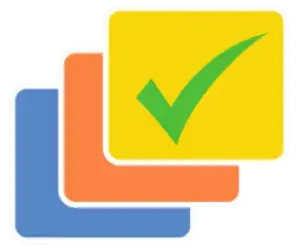Are you looking for the Classworks Special Education program from TouchMath? Click here to go to their site.
Classroom management allows your instruction to shine and gets you to the top of those teacher evaluations. Get started with an overhaul on classroom management today.

Classroom management is the organization and structure of a classroom to become a better learning environment for students. Check out our expert classroom management tips.
Use apps that make online classroom management easier. Classwork.com is an online worksheet maker that transforms your existing paper documents and PDFs into interactive assignments.
Simply post daily assignments in Google Classroom. You no longer have to take your attention off of teaching your class to hand out and collect assignments. After class is over, open up Classwork.com and find the results of the assignments using Classwork.com self-grading features.
There are a few different styles in managing your classroom:
The key to any classroom management strategy is to have a plan before school kicks off.
Co-teaching is where two (or more) Teachers pair up to teach specific lessons, curriculum, or activities. There are essentially seven co-teaching models, often referred to as co-teaching strategies. Learn 9 ways that school administrators can support co-teaching.
There are 7 different ways to co-teach in your classroom:
Learn more about the co-teaching models.
Co-teaching can start small as collaborative lesson planning with interactive worksheets. It can also be a school-wide initiative that has to have widespread implementation. Either way, Classwork.com can help with co-teaching.
So you’ve been told you are working with a co-teacher this year. Maybe it’s your first time, or maybe it didn’t go so well the last time. We will walk through some strategies that will make working with co-teachers successful. Once you find your groove, you will realize that an additional team member can be a true asset.
Tutoring is one of the best strategies to employ when students fall behind. But how do you do it for large groups of students who have experienced learning loss due to the pandemic? We will walk you through strategies for structuring tutoring programs that work and effective tutoring strategies.
The first thing to understand about learning loss is that students don’t typically lose knowledge. But instead, learning loss is the disruption of the trajectory of learning. So students are not at the level that experts expect them to be when they enter the new school year. You can’t add more time into a day, so how can you help manage learning loss?
Giving specific and personalized feedback is one of the most valuable things a teacher can do. But it can be challenging to fit it into your classroom for every student that you teach. Add in remote learning, and it can seem impossible to connect to your students individually for feedback. We’ve rounded up a few ideas on incorporating feedback into your classroom, no matter your situation.
You may have just a short time to make a great first impression. Here’s a rundown of things to consider before hosting your Meet the Teacher Night. (PLUS, we’ll give you a copy of our FREE Meet the Teacher Template!)
Teachers can now gather classroom data more frequently. We’ll walk you through some strategies to make your class more data-driven.
Engaging activities keep the students focused on the work rather than straying away from the assignments. Activities are designed for learning, engagement, and assessment of understanding. Here are 6 alternatives to worksheets to help bust out of busywork.
Anyone who has been around a child of any age knows that they all progress and learn differently. That’s what pro educators already understand and the core of what makes outside bystanders so confused about today’s classroom.
You can’t just stand in front of the classroom and teach and get high levels of mastery. You’re either going too fast or too slow. You’re only helping the middle. When you put more features of a self-paced classroom into your everyday routine, you’re giving your students space to learn at their own pace.
Have you ever had one of those days in your classroom when the questions just don’t stop coming, when no matter how many times you explain a topic, it seems that there’s still a lot that the students didn’t catch? Yep, we’ve all had those days!
One way to combat that barrage of never-ending questions is to shift some of the responsibility for learning onto the students. With some targeted and strategic instruction, you can help your students assume a bigger role in their own learning, even if it feels like you’re starting from absolute zero.
You can use the “I Do, We Do, You Do” method to help wean students away from direct and explicit classroom instruction so that they can explore the skills and processes that you’re teaching on a more individual level.
It never fails – you’re preparing for a hectic school day, and your administrator taps on your door and asks you to cover a class. You say yes because you have to: pressure from your boss, doing the right thing, worry you might be in the same boat in the future. But you know the time crunch that you’re under. You’re going to lose your precious planning period. There goes your time to focus on your extensive to-do list, use the restroom, and head to the copy machine.
Teacher shortages affect everyone in the school building, but there are some strategies for having fewer teachers in the building while higher-ups solve the problem. Let’s dive into things you can do right now to deal with teacher shortages at your school.
Schools are a place for fostering the minds of students to prepare for their futures. But nowadays, educators notice that classroom seats are being left empty for days on end, in more significant amounts than before.
Chronic absenteeism is a nationwide crisis taking away your students’ potential. To help combat this, it is up to educators to keep students physically and mentally present in their classrooms.
The beginning of the school year is always full of surprises. Your class rosters are often handed to you pretty late in the game, and you never know which students will be in your class with IEPs. Often you have another teacher to collaborate with— your SPED teacher. But with teacher shortages all over the country, more and more teachers are experiencing the effects of teacher shortages.
But one teacher shortage that teachers especially feel is the SPED teacher shortage. Let’s dive into this challenge for schools and what tools you can use to help your day-to-day life in the classroom.
Classroom management is a topic that encompasses so much of your experience as a teacher. It covers everything from class rules and roles to farther-reaching learning expectations, and your classroom management can impact productivity.
This academic year, you’re probably staring down the barrel of larger class size. Thinking ahead to classroom management with larger-than-ever class sizes can be daunting. Still, you can apply some techniques and strategies to implement effective classroom management in a crowded classroom.

Classwork.com makes managing your classroom more manageable. Classwork.com is one of the best tools for simplifying assignments, assessment, and practice in your classroom. You can: